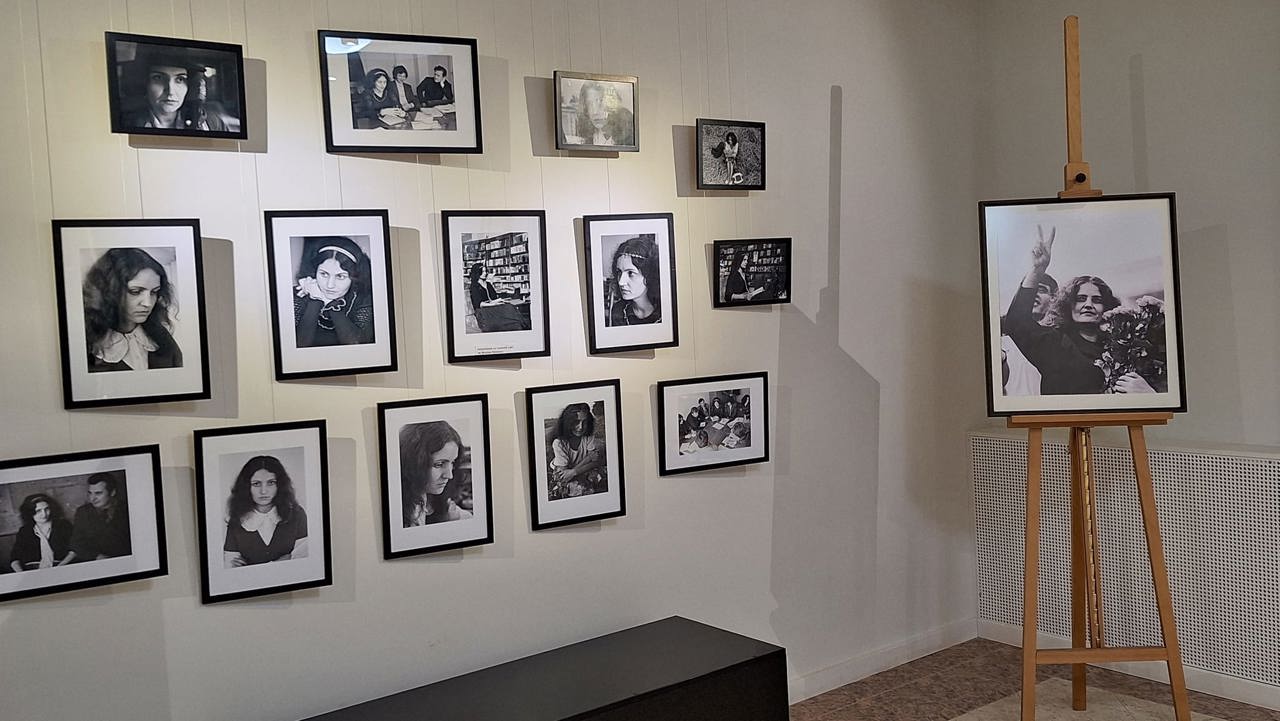Poet who stopped Soviet tanks honoured in Chișinău
The National Museum of Romanian Literature is currently hosting an exhibition dedicated to the writer Leonida Lari, who would have turned 75 on October 26th.

The exhibition takes its title from a line in one of the late poet's poems and highlights her life and work through valuable collections of books, manuscripts, documents, photographs, and artwork.
The exhibition offers visitors the opportunity to explore Lari's literary and cultural contributions, as well as her significant role in the movement for national identity.
"This exhibition is in memory of Leonida Lari," said Maria Șleahtițchi, director of the National Museum of Romanian Literature. "She was a poet of exceptional character who stopped Soviet tanks before the fall of the empire, and a poet we need today, when it seems the tanks are rolling towards us again."
A notable exhibit is the typewriter used to produce the first materials in the Latin script for the magazine "Glasul" ("The Voice"), as well as for the newspapers "Glasul" and "Glasul Națiunii" ("The Voice of the Nation"), and the first books published during that period.
Ion Hadârcă, a former colleague of Lari's in the Congress of Deputies of the USSR, recounted, "She was perhaps the only woman Gorbachev feared. She spoke with conviction and truth about the occupation of Bessarabia, insisting that we never signed any union treaties and that the Russians have no right to this land."
Alexandru Corduneanu described his acquaintance with Lari: "I met her in the 1980s. An extraordinary poet, philosopher, mystic, and then, of course, Leonida Lari of '89, the flag bearer of the National Renaissance and a true fighter."
Mihai Iorga, Lari's husband, was also present at the event. He shared, "She was a mother, a poet, a human being. When necessary, not only Leonida, but many writers, and not only writers, took a stand. It wasn't easy then, and the family felt it, she felt it too, but she had the strength."
Attendees paid tribute to Lari, reflecting on her profound impact on national literature and culture.
Monica Babuc, director of the Romanian Cultural Institute "Mihai Eminescu," stated, "Leonida Lari is an absolutely fascinating poet who, beyond her literary work, is an exceptional model of the struggle for our Romanian identity values. She was a mother, a wife, with three children to raise."
"She awakened the national consciousness," noted Dr. Alexandru Burlacu. "When she appeared at the podium at various rallies, she was, as Mihai Cimpoi said, 'a Joan of Arc.' She truly captivated and ignited the crowd with her verse. She was a great poet who cultivated an unmistakable style."
Leonida Lari was born on October 26, 1949, in the village of Bursuceni, Sângerei district. The esteemed poet and champion for national identity passed away on December 11, 2011, and is buried at the Central Cemetery in Chișinău.
Translation by Iurie Tataru





